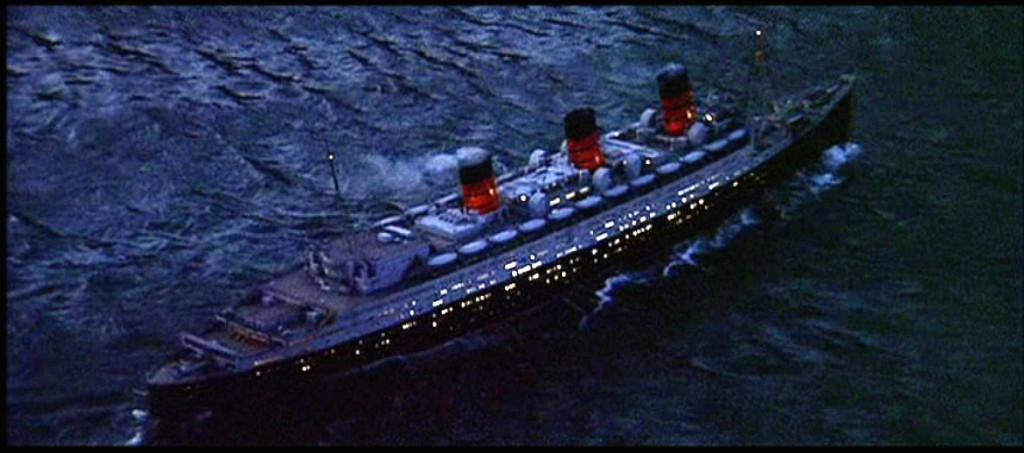Favorite screenplays: The Poseidon Adventure part 3
It’s New Year’s Eve, approaching midnight, on this ship that is upside-down but nobody realizes it yet. We check in with all our main characters once again before disaster strikes. The working-class Rogos fight, then kiss and make up, the waif Nonnie sings, the lonely Mr. Martin (surrounded by young ladies) takes his vitamins, the Rosens kibitz, The Captain relaxes, Acres pours champaign, Rev Scott waxes hippy, Susan lusts for Rev Scott, and little Robin interrogates the Purser, who will soon become a pivotal character. The Purser, explaining himself to Robin, is the ship’s manager — not the owner (the businessman), not the captain (the leader) but the manager, the middle-man of song and story. Now that we’ve met everyone and examined their strategies for dealing with the chaos of a world upside-down, the world goes ahead and actually turns upside-down. After the metaphor is made literal and many people die violent deaths, the first key argument is between Rev Scott and the Purser. The Purser, the middle-manager, demands that everyone stay where they are — that is, maintain the status quo. “Help is on the way” he shouts. Rev Scott, on the other hand, understands that there is no help, that The Captain is dead, and that the real authorities were never on the boat to begin with — or rather, each individual is his or her own authority.
How, then, to survive? It would be nice if Rev Scott was the one who comes up with the “climb to the bottom” strategy, but it’s actually Mr. Martin, the milquetoast lonely man. Mr. Martin comes up with a number of important ideas during the narrative, but he’s not a leader, he’s just a passenger. Rev Scott is the leader.
Except where Rogo is concerned. Rogo is the most complex character in the narrative, he is both an authority figure (a cop) and a man who resents authority. “Everything by the book” is what his ex-streetwalker wife says to insult him, but I don’t get the sense that Rogo is that kind of cop — he seems more like the kind of cop who bitches and complains, who is lazy and bitter. And yet he demands obeisance to the Purser’s authority while snapping at Rev Scott’s alternative. Like a lot of cops, he’s a complainer but sees authority as a necessary bulwark against anarchy.
So: the Man of God, the Cop, the Whore, The Lonely Man (let’s call him The Little Man), The Child, The Teen, The Waif, The Waiter and The Elderly Jewish Couple, a tight group of cultural archetypes, go searching for salvation in an upside-down world. Rev Scott understands one thing clearly: to survive in an upside-down world, you must think upside-down. Power once flowed from the top, but now the top is beneath us, we are on our own, we are our own power.
“Life is up there,” Rev Scott says to Mrs. Rosen, “and life always matters, very much.” It’s interesting that Scott says “life” instead of “hope” or “salvation.” “Hope” is just another word for “dream,” and “salvation” is just another word for “God,” and Rev Scott believes in neither. He’s a priest who behaves as a secular humanist. Maybe that’s why he uses the Christmas tree to climb out of the ballroom; the baldness of the Christ metaphor is mitigated by the pagan symbology of the evergreen. Scott’s idea of Christianity is based squarely in practicality.
Scott confronts The Chaplain. The Chaplain knows that, even though it means his death, he cannot leave his flock, whether they care about his sacrifice or not or even know about it. The Chaplain’s spirituality is all but squandered, his selflessness ultimately a kind of narcissism — he stays with the doomed because that is how he defines himself.
After everyone has chosen their sides, the sea rushes in to drown all who chose unwisely. Rev Scott, in a movie not known for its ambiguity, is granted a moment of ambiguity. He sees the horrible carnage of the ballroom and reluctantly turns his back on it — his humanism has no time for regrets.
